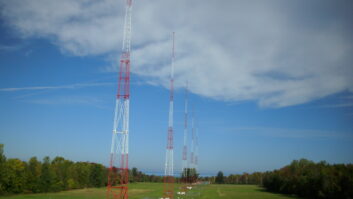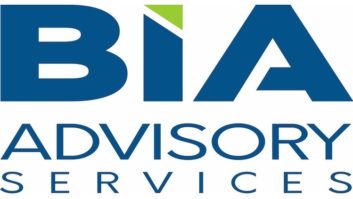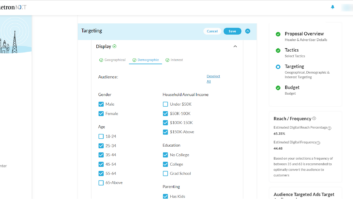COLE’S LAW
The FCC May Not Pull Its Punches the Next Time a Noncom Transgresses
“Out, damned spot! Out, I say.”
So said Lady Macbeth long ago, and so said the FCC’s Enforcement Bureau to a noncommercial licensee recently.
In a decision directed to the licensee of WAAQ(FM), a noncommercial educational FM station in Onsted, Mich., the bureau spanked the station – but not too hard – for broadcasting commercial announcements both on WAAQ and on a translator in nearby Mt. Pleasant.
In recent years, a number of commercial stations have expressed concern about a seeming increase in “commercials” being broadcast by noncommercial stations. The bureau’s recent action reflects the fact that the commission can and will step in when a noncom licensee steps over the line.
And what is that line?
No remuneration
Let’s start with the obvious. Noncommercial stations may not broadcast “advertisements.” In this context the Communications Act defines “advertisements” as program material broadcast “in exchange for any remuneration” and intended to “promote any service, facility or product” of for-profit entities.
That looks simple enough, but the question gets more complicated when you realize that noncom licensees are permitted to air “acknowledgements” of contributions made to the station by commercial businesses. This is where things get a bit murky, as such “acknowledgements” may identify the contributor, but may not “promote” the contributor’s products, services or business.
Okay, then, what does “promote” mean? According to the FCC, underwriter announcements may not contain “comparative or qualitative descriptions, price information, calls to action or inducements to buy, sell, rent or lease.” But they may contain non-promotional references to the underwriter and its products.
How can you tell the difference? It’s at this point that the FCC becomes distinctly unhelpful. It admits, “It is at times difficult to distinguish between language that promotes vs. that which merely identifies the underwriter.” And at that point, the commission accords the noncom licensee considerable discretion to exercise its own reasonable, good faith judgment on a case-by-case basis.
Rules of thumb
As a practical matter, there are several rules of thumb that may come in handy.
If an announcement refers in any way to price or adjustments to price (such as discounts, rebates, two-for-one deals, “free” offers, etc.), it is almost certainly an “advertisement” that should not be broadcast on a non-commercial station.
Similarly, if the announcement contains anything more than a non-detailed reference to the nature of the goods or services provided by the underwriter, the chances are that it could be an “advertisement.” And, of course, the more extensive, colorful and complimentary such references become, the more certain it becomes that the line has been crossed.
And if the announcement contains any suggestion, direct or otherwise, that the underwriter’s goods or services are in any way preferable to any other competitive goods or services, you’re almost definitely on the wrong side of the line.
All of which is an elaborate way of saying that, if it sounds like a spot, there’s a good chance that it is a spot.
Which makes it a bit puzzling that the WAAQ licensee could have seriously thought its announcements were anything but spots.
For example, according to one of the announcements (for a local appliance store), the underwriter was “putting the freeze on prices with cool rebates,” including a “$75 rebate” on the Amana refrigerator with the “easy freezer pull out drawer and spill saver adjustable glass shelves.”
The announcement also helpfully advised that the Amana Side-by-Side refrigerators – you know, the ones that are “packed with features” – were available with a $50 rebate.
So here you’ve got repeated instances of pricing information and relatively detailed descriptions of various qualitative aspects of the underwriter’s goods. Those of you who guessed that this was a spot were correct.
Ditto for the announcement for the cellular company that could give you “the safety and security of cellular” for “less than $10 a month,” with “100 anytime minutes, for life, and the phone is free.” And the other cellular company, where you could get digital handsets “for only $19.00 and Go American Plans with free long distance and roaming.”
And so, too, for various other underwriters, all of whose announcements included price information, qualitative descriptions and, in some instances, suggestions of comparative superiority.
Translation problem
For its part, the WAAQ licensee apparently sought to emphasize its claim that these announcements (which it claimed were not really advertisements) were not broadcast over WAAQ, but rather were aired on its FM translator pursuant to the rule which permits translator licensees to originate up to 30 seconds of programming per hour for fund-raising purposes. According to the licensee, that rule contemplates the broadcast of “advertising messages” promoting for-profit sponsors.
The bureau rejected that interpretation, holding instead that “the same restrictions that apply to noncommercial FM station are applicable to noncommercial FM translator facilities.” Thus, if it’s a spot on the main channel, it’ll still be a spot on the translator.
Moreover, the bureau went on, it turned out that the licensee ran these advertising messages on the translator in blocks several minutes long. But that means that the licensee was also violating the 30-second per hour limitation on program origination on the translator as well.
In view of the pretty obviously commercial nature of the announcements at issue here, the bureau might have been expected to slap the licensee with a reasonably hefty fine. Instead, perhaps motivated by the good cheer in the year-end holiday season, the bureau declined to assess any monetary forfeiture. It merely admonished the licensee to do better next time.
More to come?
This decision probably is good news to noncommercial broadcasters, who may take comfort in the fact that the broadcast of even these particular announcements did not lead to a fine. But there is likely to come a time when the FCC will determine that it has issued enough guidance and warnings.
While the commission may have pulled its punch this time, it may not be inclined to do so the next time, or the time after that.
By contrast, this decision is almost certainly good news for commercial broadcasters who feel threatened by increasing commercialism in the noncommercial end of the band. This is particularly so in view of the substantial number of noncommercial translators for which applications were filed during the open window last summer.
If the bureau had held that noncommercial translators could properly broadcast real “advertisements,” the line between commercial and noncommercial – already somewhat indistinct – would have gotten considerably blurrier and, with the likely arrival in the near term of boatloads of new noncommercial translators, the competitive environment would likely have become considerably more difficult.
If you have concerns about whether any particular announcement may be an “advertisement” – perhaps you’re a noncommercial licensee looking to stay out of trouble, or maybe you’re a commercial operator concerned about the commercial tendencies of a noncommercial station in your area – you should consult with communications counsel.












